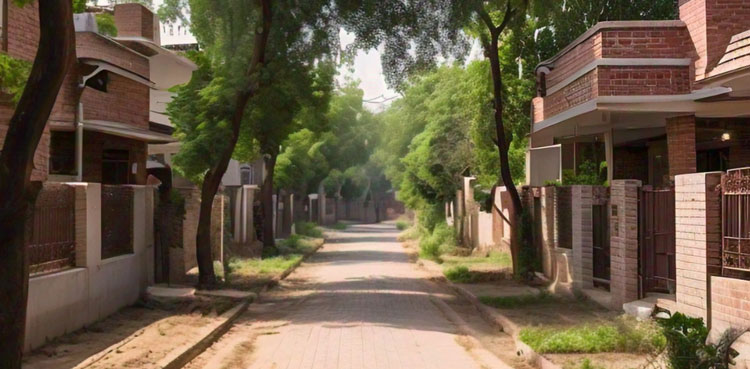Growing up in Pakistan, the best investment advice any family got from grandparents was to invest in real estate. Buying a plot or a piece of land in Pakistan was considered to be the best investment one could make in their life.
Mostly all ’60s and 80’s generations have regretted if they did not own their land in Pakistan. Optimism, pride, feelings of achievement & self-actualization have been associated with being a homeowner in Pakistan also termed a landlord.
Pakistan – home to one of the booming real estate markets in the past, with values skyrocketing and demand constantly growing, the sector had historically managed to attract more than 50 % of all remittances.
Due to the increasing population and government-friendly policies, the demand for the real estate sector has grown manifold, especially in urban centers like Lahore, Karachi, and Islamabad. According to sources, plot prices in cities such as Karachi increased an astonishing 300 % in 10 years from 2007- 2017.
The enormous increase in prices was less linked to development and more associated with fear of missing out which led to a massive bubble in the market that eventually busted once the country witnessed high inflation and growing rate interest to 22 %, along with the shift of government policies of increasing tax on the sector and political instability resulted in the downside of 70 – 80%.
Since the downside in the sector and with the devaluation of PKR in the past 2 years, there have been mixed emotions for locals and expats entering the real estate sector. From fear of missing out to fear of losing more – the perception has changed and investors as well as end users are more cautious about investing in the sector.
Future outlook: An opportunity or not?
According to the Pakistan Bureau of Statistics, Inflation in the country has gone down from 20.7 % in March 2024 to 17.3 % in May 2024 resulting in ease for 3rd consecutive month.
The future outlook suggests that the interest rate may follow and come down to 17 % at the end of 2024 or the first quarter of 2025. Pakistan also expects to avoid rupee devaluation by maintaining foreign exchange reserves firm and boosting growth above 4 % In the coming years.
The shift in dynamics in the sector will improve with the rise in development work and regulation. Policies that can help to protect the funds of expats as well as local investors and end users by giving them access to information on approved land or societies as well as limiting permission to only regulated developers who are members of licensed associations to market or sell their societies/projects to the general public.
While we do not expect the next 6-8 months to see a burst in activity due to global macroeconomic challenges, the country is putting the right fundamentals in place for its real estate market to take off over the next few years.


Leave a Comment